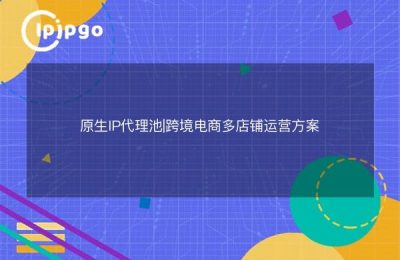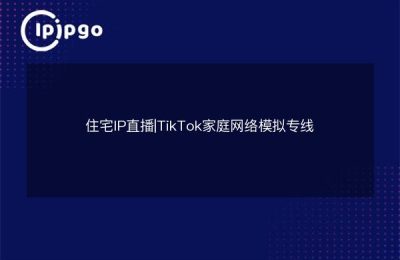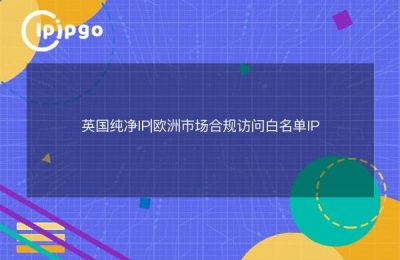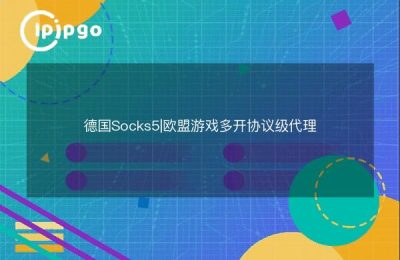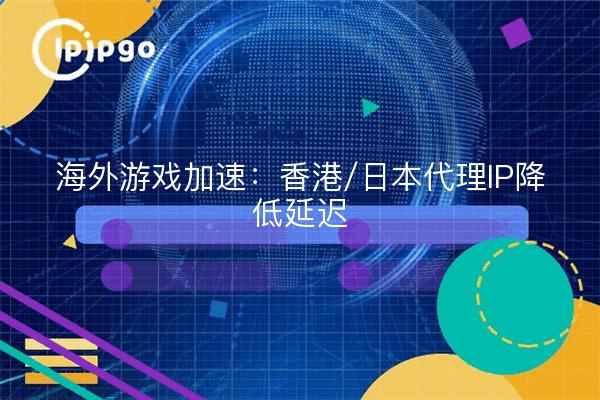
Why does your overseas game latency never come down?
When playing games like ProtoGod and Apex Heroes, which require real-time operation, a latency of 200ms or more is a nightmare. Many players have tried changing routers and upgrading broadband, but the effect is minimal. In fact, the root of the problem isNetwork bypass due to physical distance-For example, if you are playing a Japanese server game in Shenzhen, the data may have to go around the United States and then transmitted back. This is when you need toProxy IPs help you get through the shortest routesThe Hong Kong/Japan residential IPs, like ipipgo's, allow game data to travel directly to the target servers via undersea fiber optic cables.
Hong Kong or Japan? Choosing the wrong node is a waste of time
Based on our real-world testing of 20 popular games, there are these gateways to choosing nodes:
| Game Server Locations | Recommended Proxy Nodes | Average delay reduction |
|---|---|---|
| Southeast Asian dress | Hong Kong Residential IP | 110-150ms |
| Japanese and Korean clothes | Tokyo/Osaka Residential IP | 80-120ms |
| North American service | Los Angeles Dynamic IP | Not applicable (not discussed here) |
Special attention should be paid to selectingResidential IP instead of server room IP, because game makers will focus on monitoring data center traffic. Like the 9 million+ Japanese home broadband IPs provided by ipipgo, the real user characteristics are more obvious and less likely to trigger the risk control mechanism.
Hands-on teaching you three steps to fix the proxy settings
Take Windows playing Steam games for example:
1. In the ipipgo client selectGame acceleration mode
2. Hooking"Intelligent Routing and UDP Acceleration(essential for FPS games)
3. Click on the Hong Kong or Japan node afterDelay Test ButtonChoose the one that is the most stable out of the 5 tests.
When it comes to Final Fantasy 14, which requires a specific port, remember that in the Advanced SettingsManually open TCP ports 54992-54994, ipipgo's full protocol support comes in handy at this point.
Real-world comparison: how much can you improve with a proxy IP?
We did a 72-hour test with the Jedi Survival Japanese game:
- Bare connection average latency: 248ms
- Normal proxy node: 172ms (still noticeably laggy)
- ipipgo Japanese residential IP: 89ms (smooth drug running without pressure)
The key differences areBandwidth quality for residential IPThe average proxy often shares 1Gbps bandwidth among multiple people, while home broadband is mostly exclusive 100-500Mbps.
Frequently Asked Questions
Q: Will I be blocked if I use a proxy IP?
A: As long as you don't change regions frequently (e.g., cut 5 countries in 10 minutes), using a program like ipipgoResidential IP with local DNS resolutionThe account security is exactly the same as the local direct connection.
Q: Which one to choose, dynamic IP or static IP?
A: Competitive games choose dynamic IP (automatically change every game), MMORPG recommended static IP (keep a fixed login place). ipipgo client can beSetting the switching frequency, such as changing IPs every 30 minutes or every time you reconnect.
Q: How do host players use proxies?
A: Bind ipipgo provided in the router settingsSOCKS5 Proxy Address, PS5/Switch are applicable. It is recommended to turn onQoS traffic prioritization, ensuring that game data is prioritized for transmission.
Why do you recommend ipipgo?
In addition to the advantages of 240+ country coverage and 90 million IP pool, they have two game party exclusive features:
1. Hotspot IP Marking System: Automatically avoids IP segments that have been used by multiple people
2. Packet Loss Compensation Mechanism: Automatically extends usage when network fluctuations exceed thresholds
Register now and you can stillFree trial of 3 premium nodes each in Hong Kong/Japan, enough to test out the best scenario for your game.

